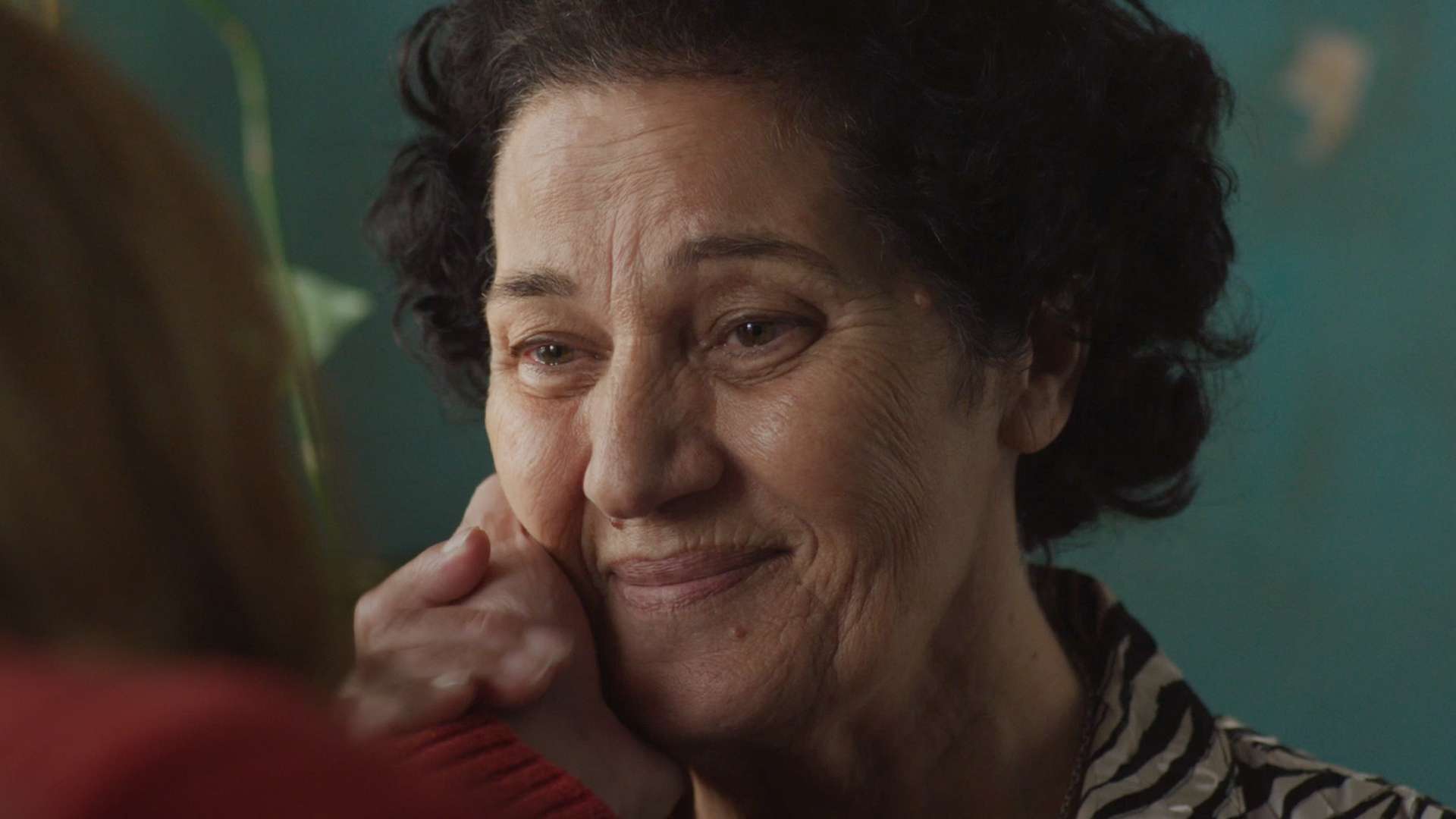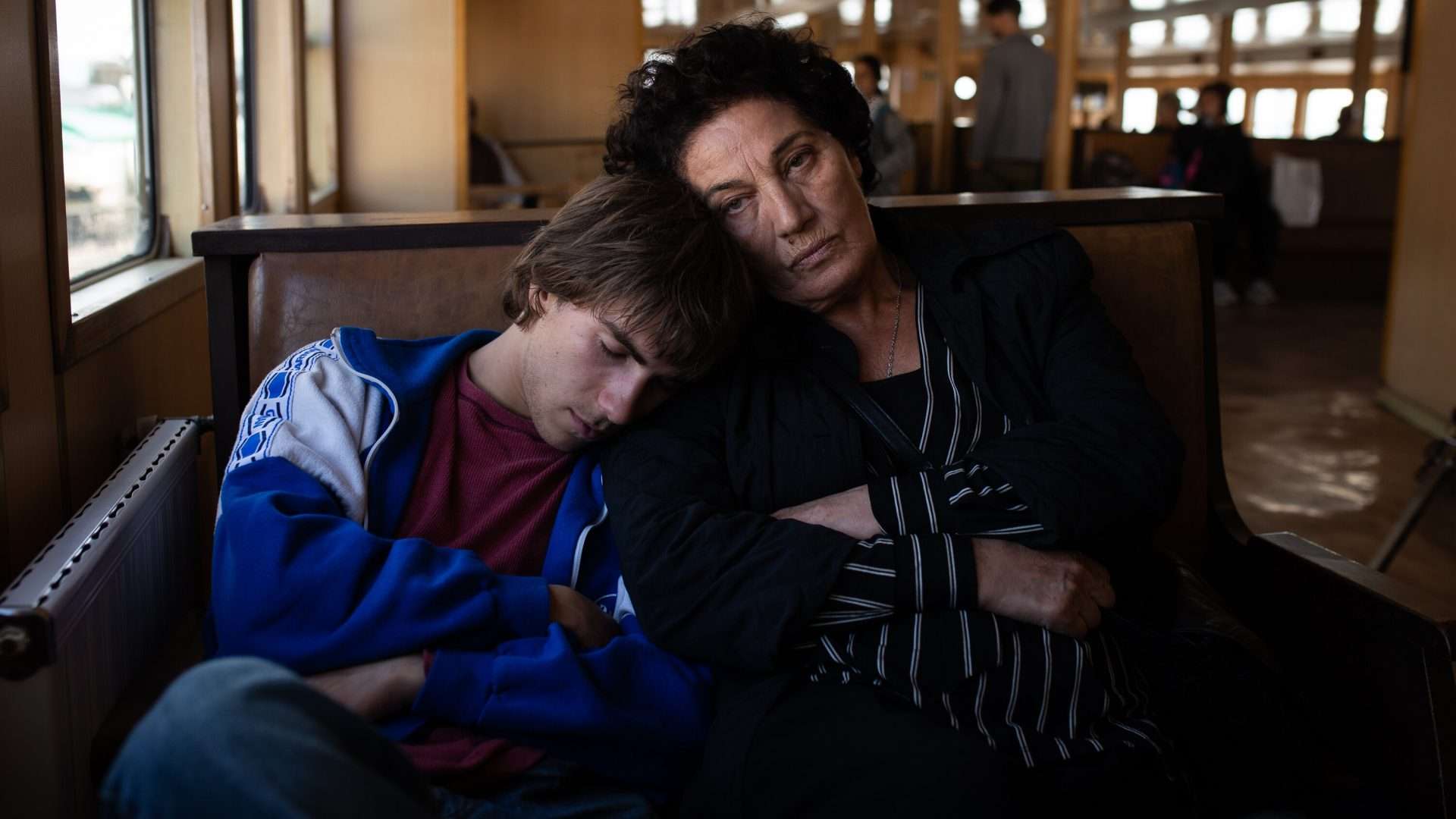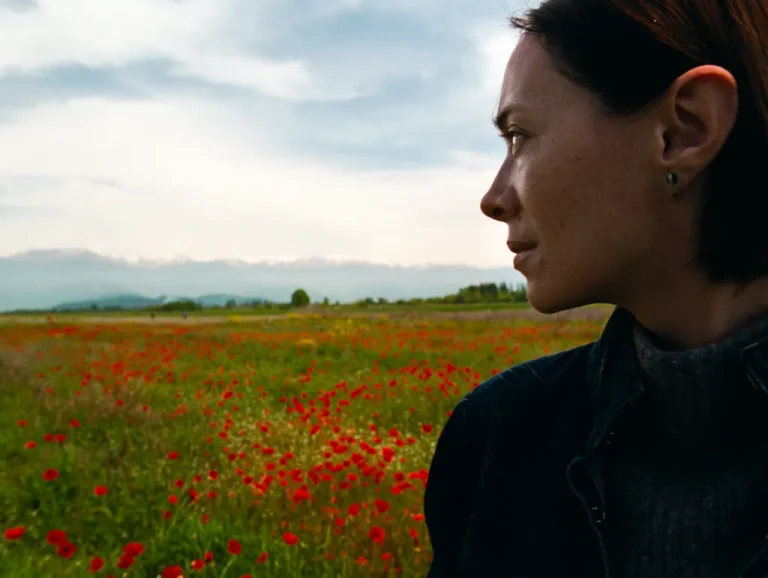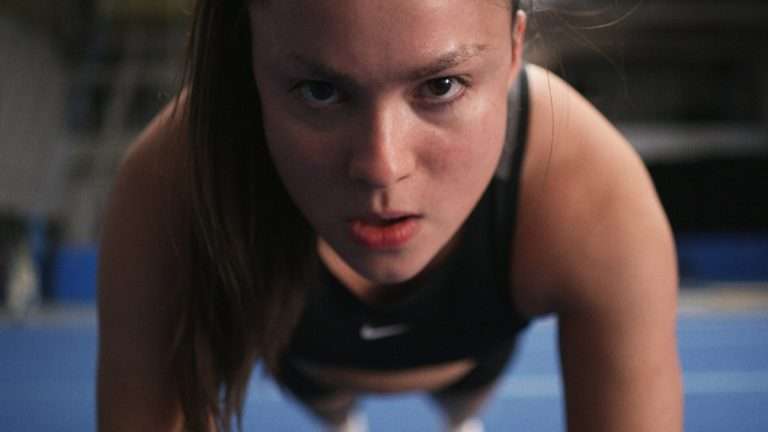In his now iconic song The Times Are A-Changin, Bob Dylan commented on the seismic shifts that society undergoes as part of its evolutionary nature. Although the eclectic singer’s protest anthem concerned itself with the changing landscape of the Americana, it spoke about a greater truth of humanity at large. The new will periodically take over the old, regardless of how resistant the latter proves to be. It is the cycle of life. However, there’s nothing harder than changing a mindset, specifically one that is shaped by our surroundings from birth and all the way deep into adulthood.
Anchored by a burgeoning companionship that slowly bridges a substantial generational gap, transitioning from a stern and rigid way of thinking into a more accepting and compassionate one, Levi Akin’s poignant drama “Crossing” (2024) illustrates the difficulties of self-becoming in an environment with deeply ingrained animosity towards the unorthodox, showing that it is never too late to let go of prejudices and backward notions.
On an uneventful afternoon, as the Black Sea’s serene and crystalline waves gently crash on the shore of a neighborhood in the Georgian coastal town of Batumi, retired history professor Lia (Mzia Arabuli) restlessly asks around to the locals for any bit of information they might have regarding the whereabouts of Tekla, her estranged niece who left home due to traditionalism that posed against her true nature, whom she wishes to find and bring back home, or so she promised the girl’s mother in her deathbed.
She is welcomed into the house of a former student, and it’s there where she first meets Achi (Lucas Kankava), a free-spirited teen without parents living at his brother’s home. The young man intrudes on the conversation by commenting that Lia is talking about ‘one of those transgender girls.’ His remark visibly causes a commotion in the household, underscoring the taboo nature that discourse around gender identity, let alone gender reassignment, poses in the heteronormative milieu of Georgia—further reinforcing the reason why Tekla fled.

Achi offers Lia a tiny bit of hope by informing her that Tekla went to live with some friends in the neighboring country of Turkey. He claims to know her exact address, so he offers to accompany her as an interpreter, which she begrudgingly accepts. Together, this mismatched pair of lonely, broken souls embark on a journey into the unknown, bustling city of Istanbul as they search for long-lost family members.
This missing girl plot serves as the loose narrative structure around which Levan Akin traces the transformative journey of his characters, deeply flawed people made tangible precisely because of all their imperfections. Like all the films centered around pairs of polar opposites—be it of the romantic, antagonistic, or amicable kind—the success of their alchemy is entirely dependent on the shared chemistry of the performers, and the duo in “Crossing” offers an ever-evolving elegant mixture of mutual help, maternal care, and emotional support, as well as the constant push and pull between the impetuosity, naïveté, and brashness of the youth versus the prudence, skepticism, and experience of the elder.
On her part, Arabuli brings layers of depth to her character with the face alone—a semblance that carries with it detectable emotional baggage and remorse most of all. At the same time, Kankava’s unfurled nonchalance adds a vibrancy that effectively counteracts the solemnity of his companion with moments of levity.
The scarcity of money, communication barriers, little white lies, and the constant friction caused by the inevitable incompatibility of the generational divide complicate their mission more than either of them could’ve expected. Soon, they find themselves aimlessly wandering through the lively and disorienting streets of a foreign place—a backdrop that does not shy away from showcasing the social issues ever-present in all corners of the world, as are poverty, immigration, and discrimination, while also spotlighting the effervescence of folkloric elements like singing, dancing, informal economy, and the overall street-life which is denied the stereotypical treatment often seen in western iterations.

At different stages down the road, the unlikely duo crosses paths with people from all backgrounds who assist them in their quest, including two street kids and an expat who embody the selfless kindness of strangers to be found everywhere. In particular, a lawyer and rights defender, Evrim (Deniz Dumanli), helps them access the heart of the trans community that initially closed its doors to them, helping them to track down the last place where Tekla was seen working as a sex worker before presumably surrendering completely to drugs. This last character’s side story functions as the conduit through which the audience comes to understand Tekla’s life ordeal as a trans woman. Since Evrim, with an unbroken defiant spirit, deals with daily battles that range from micro-aggressions to upright bigotry and condescension.
Through the lens of a roving hand-held camera, courtesy of cinematographer Lisabi Fridell, who previously collaborated with Akin on his breakout film “And Then We Danced” (2019), that moves with graceful fluidity through busy streets and empty interiors, the film marvelously captures the balletic frenzy of big cities, making the search for Tekla akin to looking for a needle in a haystack. And it is perhaps the anonymity that standing in a big crowd offers makes Istanbul the ideal setting for reinvention.
With a humanistic approach to its storytelling that sidesteps any judgment, director Levan Akin tastefully paints with a fine brush a touching postcard of urban life that invites viewers to revel in the beauty of the wayward progression of life, offering a reminder that rather than obsessing with a definitive final destination, those we meet and what we experience along the way is what matters most, because if we embrace the unpredictability of life with open arms, we can find solace in the most unexpected places. Do not be surprised if “Crossing” quietly sneaks into several ‘Best of the Year’ end lists, as it most definitely is one of them.




![Everybody’s Talking About Jamie [2021] Review : Real-life tale of drag queen makes for a satisfying watch](https://79468c92.delivery.rocketcdn.me/wp-content/uploads/2021/09/Everybodys-Talking-about-Jamie-2-768x384.jpg)
![Radioactive [2019]: ‘TIFF’ Review – An Ordinary Film about an Extraordinary Person](https://79468c92.delivery.rocketcdn.me/wp-content/uploads/2020/01/Radioactive-highonfilms-768x384.jpg)
![The Last Movie Stars [2022] ‘SXSW’ Review: Ethan Hawke’s Tribute To Paul Newman And Joanne Woodward](https://79468c92.delivery.rocketcdn.me/wp-content/uploads/2022/03/The-Last-Movie-Stars.webp)